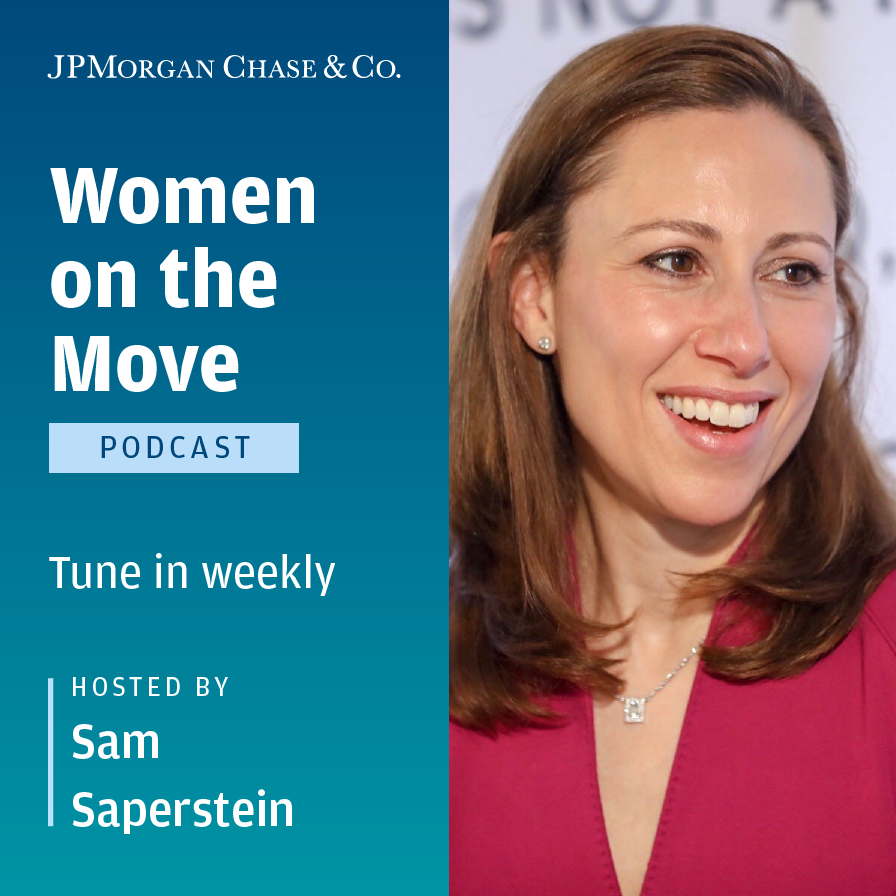Author and Professor Elizabeth Lieba on empowering Black women in the workplace
Description
Elizabeth Lieba is on a mission to help Black women feel supported and heard. Here, the writer, college professor, and advocate for Black businesswomen joins Women on the Move host Sam Saperstein to discuss her journey to understand the important historical context of race in America.
“Why are black women feeling this way?”
Elizabeth believes that the most important job for leaders is to develop their people, and she says really listening to Black women's needs is a critical part of that. She’s had a career as an educator and an advocate, and has recently released a book called I'm Not Yelling: A Black Woman's Guide to Navigating the Workplace, which provides strategies for savvy Black businesswomen navigating a predominantly white corporate America. She says one of her goals in writing the book was to empower Black women and to give them a sense of context about why they were feeling what they were feeling, and to validate those feelings.
“We've seen lately in the news that Black women are exiting corporate spaces in record numbers,” she tells Sam. “Black women are feeling overwhelmed, stressed, tired. There's a sense of a mental health crisis that has been happening. And I think it wasn't really brought to the surface until Covid 19, and a lot of Black women were obviously in the workplace and then working from home and having to juggle and balance all of those responsibilities. And I think there was a collective sense of What is happening? Why do I feel this way?”
Elizabeth says she’d already been vocal on LinkedIn about social justice and racial inequity, thinking and speaking about police brutality and racial profiling, so she felt it was the time to pivot into her identity as a Black woman and focus on issues like why all the Black women she knew had such a visceral reaction to seeing George Floyd murdered. Additionally, she said she heard over and over from Black women in every space that they did not feel like they belonged in the spaces that they were in.
“And that's literally why I started to write the book,” she says. “I wanted to advocate for Black women, and I knew that social justice and racial equity was important, but I felt like as a Black woman, I also had a responsibility to find out why I was feeling this way.”
Challenging the constructs
Another goal Elizabeth shares about writing her book was to emphasize to Black women that their authentic selves are already enough. “Because obviously if there's a problem, and Black women are exiting the workplace in record numbers, Black women are not waiting for these places to become more equitable,” she notes. “They're saying, you know what, I don't have time or space to wait for you to figure this out.”
She shares that across demographics, Black women have seen the biggest increase in leaving traditional employment and starting their own businesses—only to run into the challenge that very little venture capital funding is going to women or Black people. “They didn't really have the resources to start businesses, and they were even more stressed out because they're exiting these [traditional employment] spaces,” she says. “But then finding the same struggles with just trying to create a living outside of those spaces.”
In her book she provides the historical context for why Black women often feel like imposters in the workplace—or, even more commonly, feel that they are constantly code switching between their work and personal lives. “When you're going into a space and now you're second guessing yourself because somebody said you don't belong there, of course you're gonna have lack of confidence,” she says. “But you didn’t just hop off the bus and walk in. Someone had to invite you there. We have education, we have experience, someone has hired us, why are we being pathologized and why is someone saying, oh you have imposter syndrome.”
In the end, Elizabeth says, she won’t be happy until representation is equa
More Episodes
At JPMorgan Chase’s eighth annual Women's Leadership Day, Byna Elliott, the firm’s Global Head of Advancing Black Pathways, sits down with Alicia Boler Davis, CEO of Alto Pharmacy and JPMorgan Chase Board Director. They discuss Alicia's extraordinary career, from her engineering roots at GM to...
Published 12/21/23
Published 12/21/23
As head of community and business development at Chase, Diedra Porché has a deep passion for understanding the needs of the people the bank is seeking to serve. In this week’s episode of Women on the Move, she joins host Sam Saperstein to discuss her role and how she empowers local communities...
Published 12/14/23


